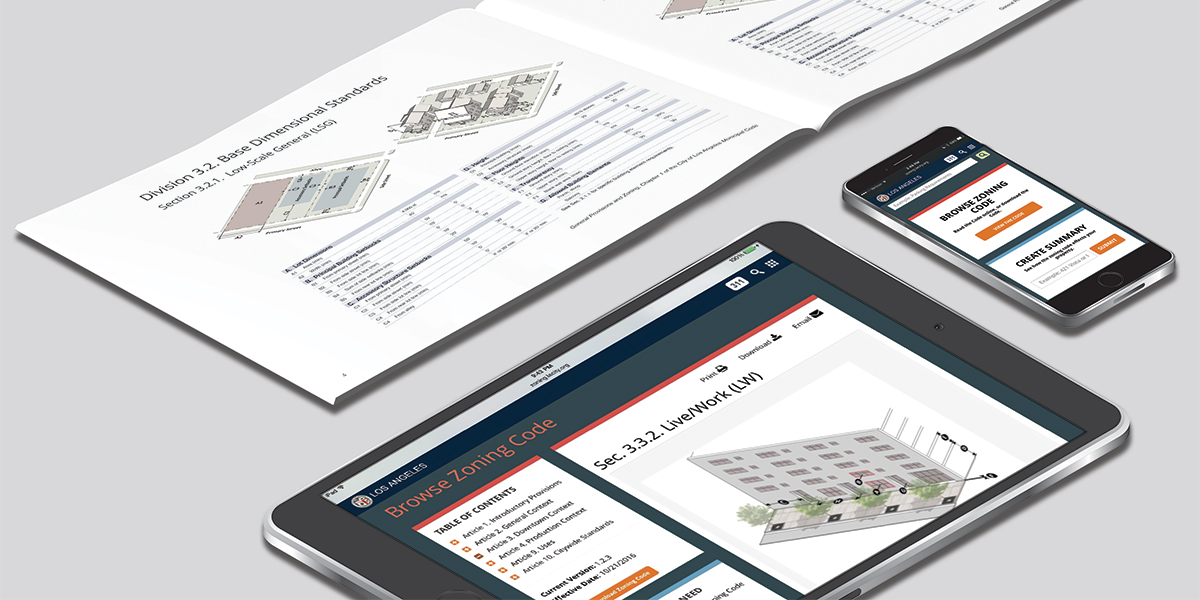Tangerine — MIG’s award-winning web publishing software — is now in the October 2017 issue of APA Zoning Practice. Tangerine is a new and better way to engage citizens using technology. The article is a comprehensive review of everything you need to know about web publishing — whether you are just getting started or have been publishing for years — from selecting a digital publishing method to launching a digital publishing campaign. It includes a review of current public agency web publishing practices based on a survey of over 600 public agencies, conducted by MIG’s partner Chris Steins of Urban Insight.
This open source software product helps cities, counties and planning agencies easily and cost-effectively convert complex and long print documents into searchable and interactive websites. It’s based on a technology developed for a City of Los Angeles web-based publishing effort. And the City has decided to make the underlying technology available as open source software. Tangerine converts documents to a mobile-optimized, searchable and interactive website. With Tangerine, planning agencies and departments get both an elegant printed planning document and a sophisticated yet easy-to-use interactive website.
In the past you may have accomplished website posting with a PDF version. However, PDFs have significant problems:
- About 50% of web traffic is now on mobile phones, but PDFs don’t work well on mobile smart phone.
- PDFs are not easily searchable. Google can only index the entire document. To find a word or phrase, you must open the entire document.
- PDF files are large. Complex planning documents can be quite large, especially if they include charts or maps. Splitting the documents into multiple chapters solves the size problem, but makes it difficult for people to download or search through the entire document.
- PDFs don’t provide many of the internet’s benefits. PDFs are not native to the internet, and don’t support interactivity, tags, complex search features or many of the other benefits of websites.
- Tangerine solves this. Two components make this new publishing process possible:
- eTemplate: Instead of starting with a completely blank document, you start with an eTemplate. This allows you to create and use formatting styles as you build your document. When you're ready to publish, the document already contains information like the document structure and informational tags that allow easy conversion to a website document.
- Website: The website component of Tangerine converts your e-Template to web content and publishes your document online. It’s based on the same open source and widely-used Drupal web content management software used by over 1.2 million websites and recognized as one of the leading publishing systems.
And why the name Tangerine? According to Urban Insight founder and CEO, Chris Steins, “A tangerine packs a lot of deliciousness into a small package. And who doesn’t like a tangerine?”
“We are so pleased to be working with Urban Insight to introduce this revolutionary technology to the field and our clients,” says Daniel Iacofano, Principal and CEO at MIG.
“The Tangerine software extends our ability to provide technology solutions from start to finish—from community engagement through plan making, publishing and achieving results,” says Steve Kokotas, MIG’s Director of Technology.
For more information, visit the Tangerine website.
Questions? Contact Steve Kokotas, MIG’s Director of Technology.

